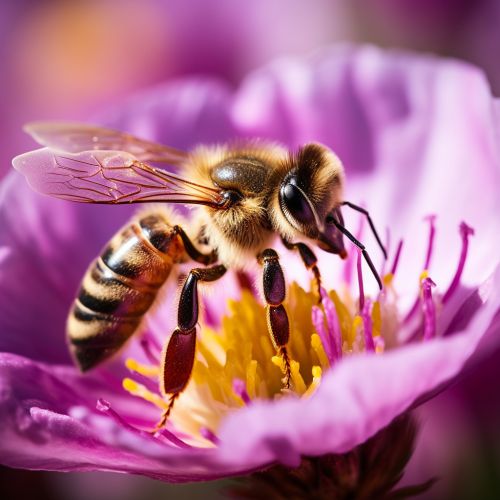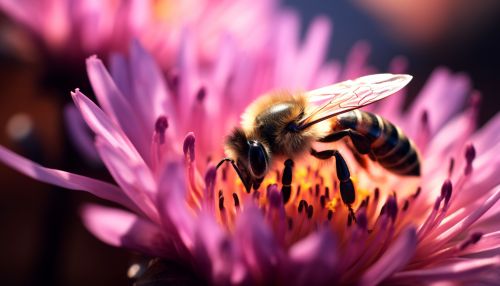Entomology of Pollinator Conservation
Introduction
Entomology, the scientific study of insects, plays a crucial role in conserving pollinators. Pollinators, such as bees, butterflies, and other insects, are essential for the reproduction of many plant species. Their conservation is a critical aspect of maintaining biodiversity and ensuring food security. This article delves into the entomological aspects of pollinator conservation, discussing the importance of insects as pollinators, the threats they face, and the conservation strategies employed to protect them.


Importance of Insects as Pollinators
Insects are the most diverse group of pollinators, with over 200,000 species playing a role in pollination. They are responsible for the pollination of approximately 75% of the world's flowering plants, contributing to the production of fruits, vegetables, and nuts that make up a significant portion of the human diet. Insects such as honey bees, bumblebees, butterflies, moths, and beetles are among the most common pollinators.
Threats to Insect Pollinators
Insect pollinators face numerous threats, including habitat loss, climate change, pesticides, and diseases. Habitat loss due to urban development, agriculture, and deforestation has led to a decrease in the availability of food and nesting sites for these insects. Climate change affects the timing of flowering and insect activity, disrupting the synchrony between plants and their pollinators. Pesticides can have lethal and sublethal effects on pollinators, while diseases and parasites can cause significant declines in their populations.
Conservation Strategies
Conservation strategies for insect pollinators include habitat restoration, reduction of pesticide use, and the promotion of sustainable agricultural practices. Habitat restoration involves the creation and maintenance of diverse landscapes that provide food and nesting resources for pollinators. Reducing pesticide use involves implementing integrated pest management strategies that minimize harm to non-target organisms. Sustainable agricultural practices, such as organic farming and agroforestry, can enhance pollinator diversity and abundance.
Research in Pollinator Conservation
Research in pollinator conservation involves studying the biology and ecology of insect pollinators, assessing their population trends, and evaluating the effectiveness of conservation measures. This research is essential for informing conservation strategies and policies. It also contributes to our understanding of insect biology, plant-pollinator interactions, and ecosystem functioning.
Conclusion
The conservation of insect pollinators is a complex and multidisciplinary field that involves the application of entomological knowledge and principles. It is a critical aspect of biodiversity conservation and food security. Continued research and conservation efforts are necessary to protect these invaluable creatures and the ecosystem services they provide.
